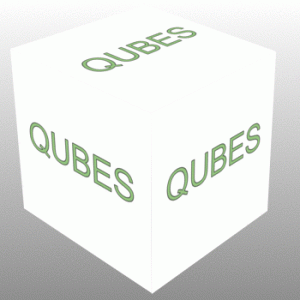 The National Science Foundation’s Division of Undergraduate Education has awarded a five-year, $2.9 million in grants to the project “Supporting Faculty in Quantitative Undergraduate Biology Education and Synthesis (QUBES).” This intiative “addresses the Nation’s growing need to better prepare undergraduate biologists with the quantitative and computational skills needed to be successful in the workplace or in graduate school” and will include the creation of faculty mentoring networks, infrastructure for disseminating resources for teaching quantitative biology, and more. The project is spread out into three separate awards to lead institutions College of William & Mary, the University of Pittsburgh, and the University of Wisconsin-Madison.
The National Science Foundation’s Division of Undergraduate Education has awarded a five-year, $2.9 million in grants to the project “Supporting Faculty in Quantitative Undergraduate Biology Education and Synthesis (QUBES).” This intiative “addresses the Nation’s growing need to better prepare undergraduate biologists with the quantitative and computational skills needed to be successful in the workplace or in graduate school” and will include the creation of faculty mentoring networks, infrastructure for disseminating resources for teaching quantitative biology, and more. The project is spread out into three separate awards to lead institutions College of William & Mary, the University of Pittsburgh, and the University of Wisconsin-Madison.
The proposal for this grant was born of a “perfect storm” of at least two events from last spring that NIMBioS was involved in. One of the award’s PI Sam Donovan (Biological Sciences, Univ. of Pittsburgh) and co-PI Jeremy Wojdak (Biology, Radford Univ.) were participants in the March 2014 BIO IUSE Ideas Lab, which NIMBioS Director Louis Gross led for NSF. As participants in the Ideas Lab, Donovan and Wojdak were invited to submit a proposal. Later that spring, NIMBioS hosted QUBES Consortium’s first liason meeting in May of 2014 (an RCN-UBE Incubator), at which many parallel needs and possibilities for synergy were explored between interested educational and professional organizations in math and biology such as BioQUEST Curriculum Consortium, the Ecological Society of America, and the Society for Industrial and Applied Mathematics (a complete list of consortium members and PI’s available here). During proposal development, Donovan and Wojdak decided to team up with the existing QUBES initiative to leverage greater impact.
NIMBioS looks forward to being further involved in the future of QUBES, having committed to hosting an advisory board meeting and a faculty development workshop related to the newly awarded grant. Congratulations to the entire grant team that put this idea together that will hopefully benefit the entire undergraduate math and biology education community.
Note: This post corrects an earlier error reporting the award as $1.7 million.
